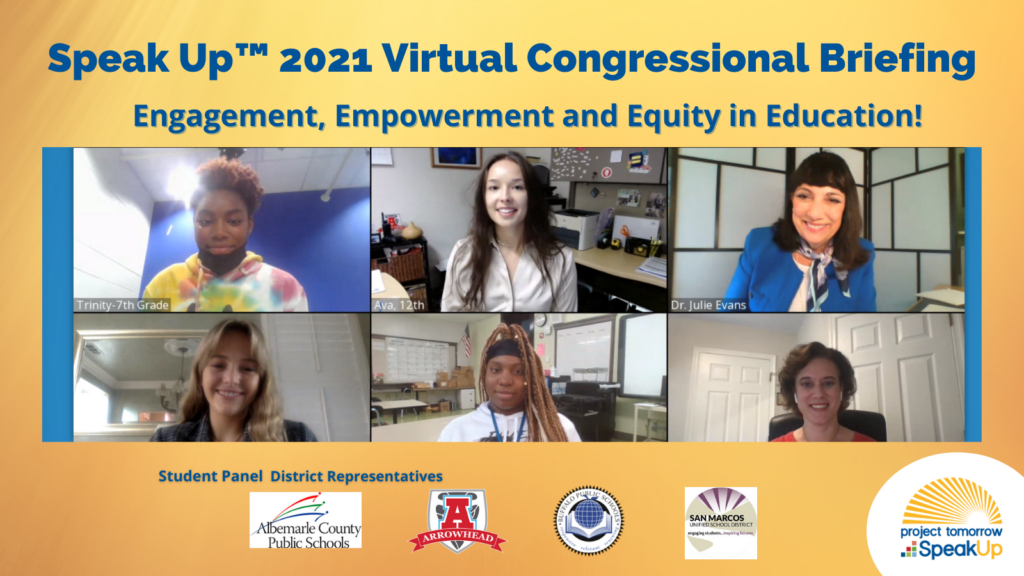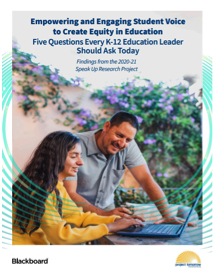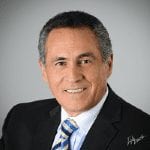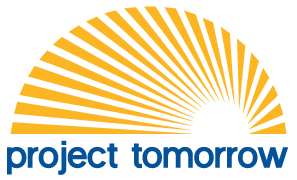Engagement, Empowerment and Equity in Education!

We know that it is more important than ever that every student is well prepared and future-ready for college or workforce success. To achieve that goal, we need learning experiences that are engaging for students and empower them to be self-directed, independent learners.
Dr. Daniel A. Domenech, Executive Director of AASA
For almost two decades Project Tomorrow has hosted a Congressional Briefing bringing the voices of K12 students, parents, educators, and administrators to Capitol Hill and sharing the findings of our research. Our goal is to provide information critical to the development of sound education policy. This year the tradition will continue with a virtual briefing enabling participation from around the U.S and globally.

The changes in American education over the past two years have been profound with enormous impact on students and educators. At the Congressional Briefing, we will highlight the latest research from our 2020-2021 surveys reflecting the authentic voices of almost 50,000 students, teachers, parents, and administrators. We will share information on empowering the student learning experience, engaging teachers and parents and addressing educational inequities. The research data will come to life with a panel of K-12 students from around the country who will tell their own stories and offer their insights on their experiences.
Key findings from the 2020-21 Speak Up Research Project, shared today with education leaders, teachers, librarians and policymakers, include:
- While two-thirds of students grades 6-12 said the top benefit of virtual learning was learning at their own pace, less than half of school principals saw it as an important benefit.
- Overall, just half of students say they’re engaged. At schools where the majority of the 6-12 grade population are students of color, just 43% agree they are engaged with what they are learning, 8 points lower than schools where the majority of the student population is white (51%).
- Self-directed learning emerged as a critical engagement tool. Surveyed students’ preference for a school culture where self-directed learning is the norm is valued by 55% of high school students. Among students who say that they wish their classes were more interesting at school, 60% identify this learning preference.
- Teachers have also become more comfortable using technology to personalize experiences for students. For example, 37% of teachers this year said they were very comfortable using technology to personalize experiences for students in their class; only 21% of teachers said the same in the 2019-20 school year.
- Additionally, 44% of teachers report that, as a result of remote learning experiences, they now understand how to engage students effectively in learning when that learning modality is online. Email (67%), mobile apps with conversational capabilities (61%), and text messaging (54%) remain the most effective way for high schoolers to communicate with teachers.
Student Panel:
7th grader from Albemarle County Public Schools, VA
11th grader from Arrowhead Union High School District. WI
11th grader from Buffalo Public Schools, NY
12th grader from San Marcos Unified School District, CA
About the Presenters

Christina Fleming is the Chief Marketing Officer at Blackboard. In her role as CMO, Christina is focused on communicating and representing Blackboard’s mission to advance learning. Her team oversees all aspects of product marketing, brand, communications, and go-to-market strategies on behalf of Blackboard.
Prior to becoming CMO, Christina was responsible for the management of Blackboard’s education technology portfolio designed for K-12. In this role, she was responsible for managing the product roadmap, the overall K-12 P&L, as well as the K-12 marketing strategy and client communications. Prior to joining the K-12 team, Christina was responsible for building and leading the Marketing and Enrollment Services division within Blackboard Success Services. In this capacity, Christina led consulting initiatives offering strategic marketing and enrollment planning services to Higher Education clients. She also previously served as the Sr. Director of Brand Strategy and Creative at Blackboard.
Prior to Blackboard, Christina spent 12 years in various marketing roles working in telecommunications. Christina has a bachelor’s in business with a concentration in marketing from The University of Notre Dame. She lives in Maryland.

Dr. Daniel A. Domenech has served as Executive Director of AASA, The School Superintendents Association since July 2008. Dr. Domenech has more than 36 years of experience in public education, 27 of those years served as a school superintendent.
Prior to joining AASA, Dr. Domenech served as Senior Vice President for National Urban Markets with McGraw-Hill Education. In this role, he was responsible for building strong relationships with large school districts nationwide.
Prior to his position at McGraw-Hill, Dr. Domenech served for seven years as Superintendent of the Fairfax County Public Schools (VA), the 12th largest school system in the nation with 168,000 students.
Dr. Domenech, an AASA member since 1979, served as President of AASA from July 1998 to June 1999. He is also a past president of the New York State Council of School Superintendents, the Suffolk County Superintendents Association, and the Suffolk County Organization for Promotion of Education. He was the first president and co-founder of the New York State Association for Bilingual Education.
In addition, Dr. Domenech has served on the U.S. Department of Education’s National Assessment Governing Board, the advisory board for the Department of Defense Schools, the board of directors of the Association for the Advancement of International Education, the Board of Overseers for the Baldrige Award and the boards of the Institute for Educational Leadership, National Board for Professional Teaching Standards, Sea Research Foundation, and Education Policy Institute. Currently, he serves on the boards of the Learning First Alliance, National Student Clearinghouse, Center for Naval Analyses, Horace Mann Educators Corporation, ACT, and USAC, and as Board Chair for Communities in Schools of Virginia.
Presentation:

